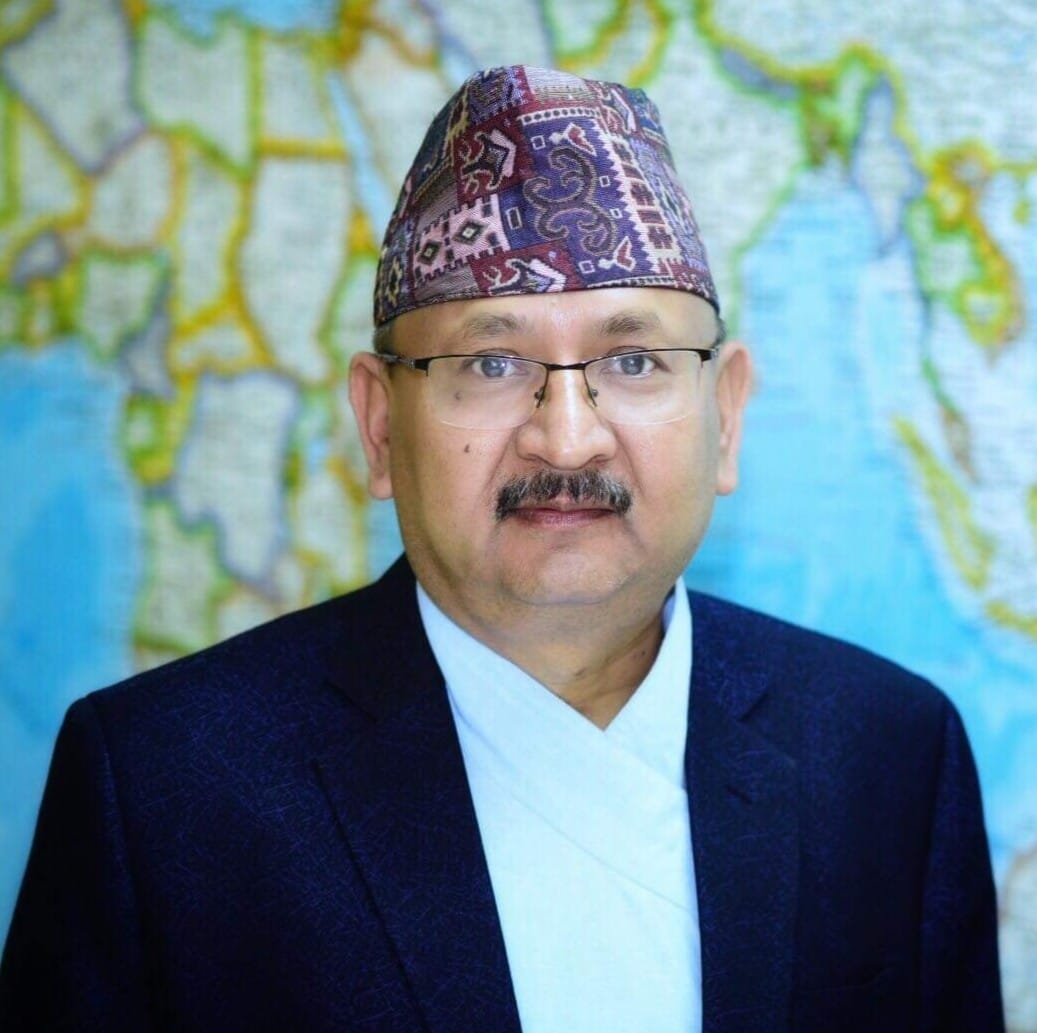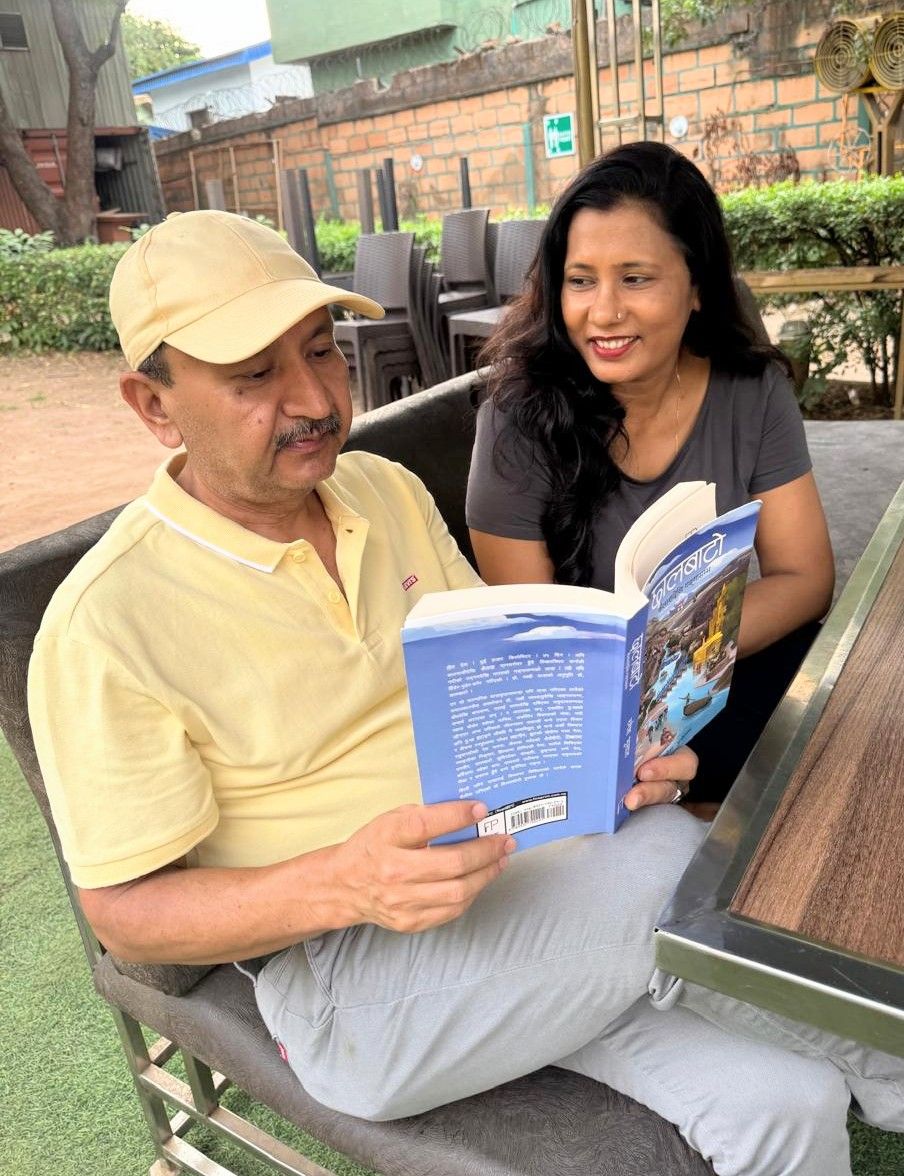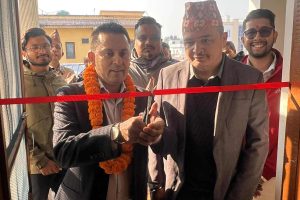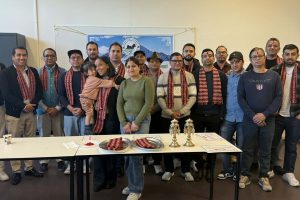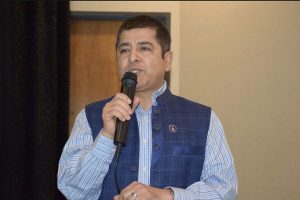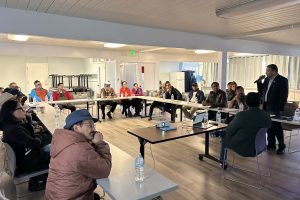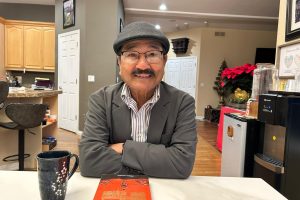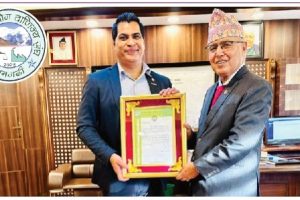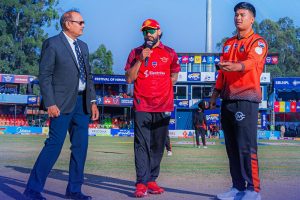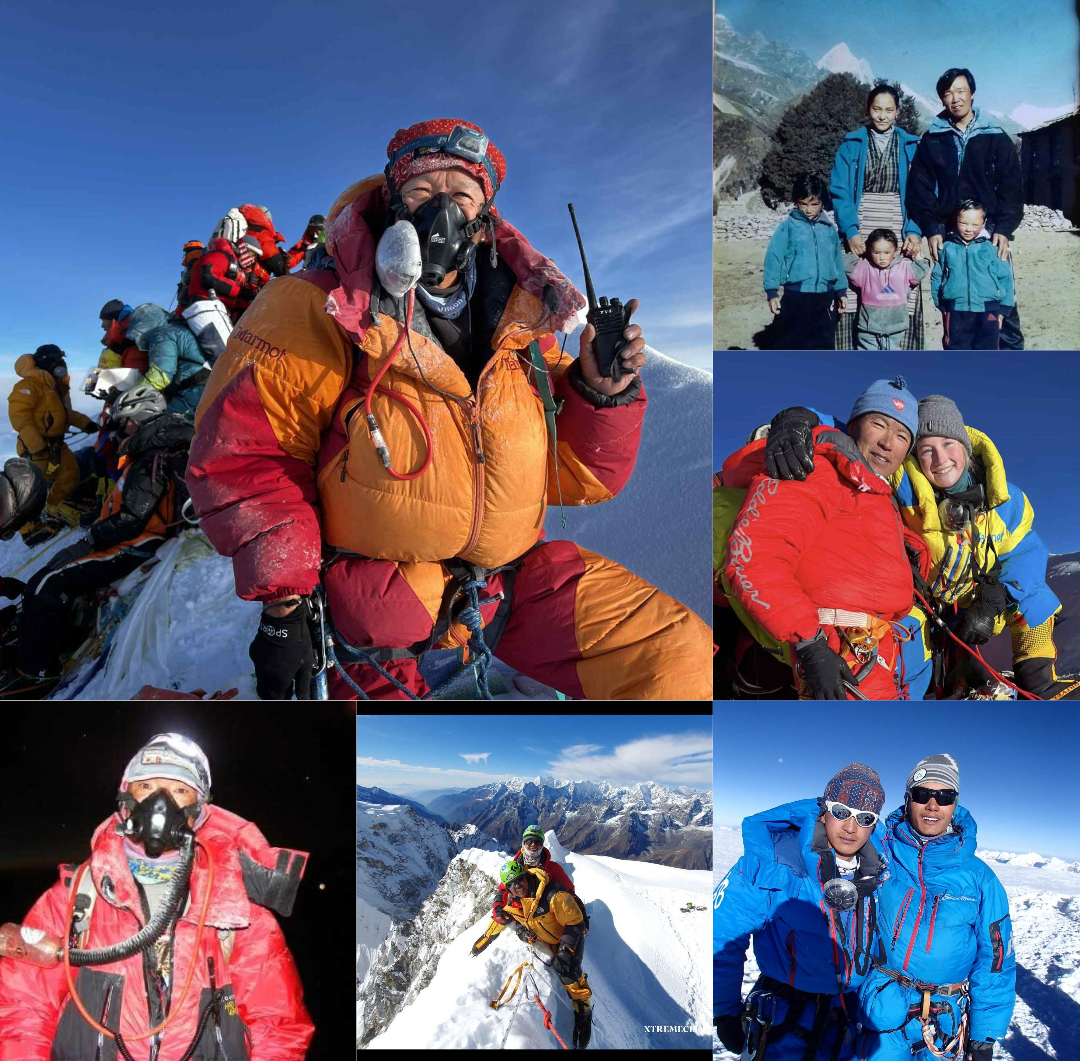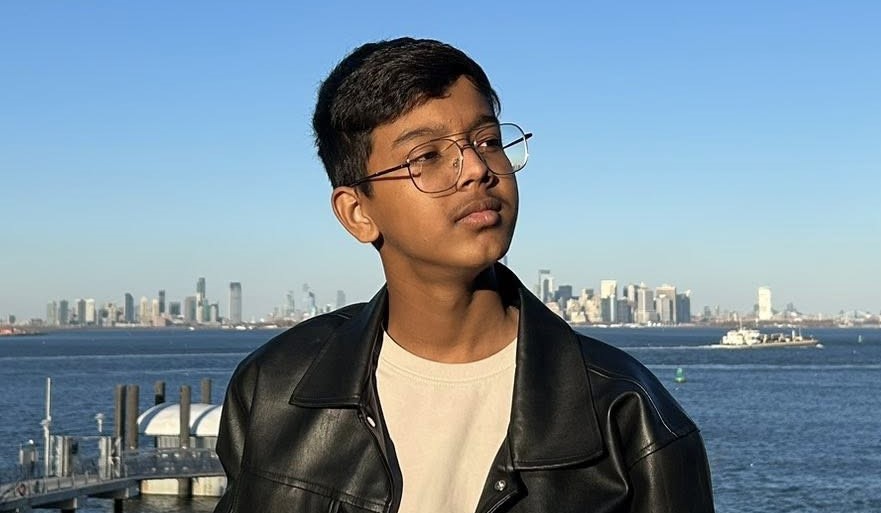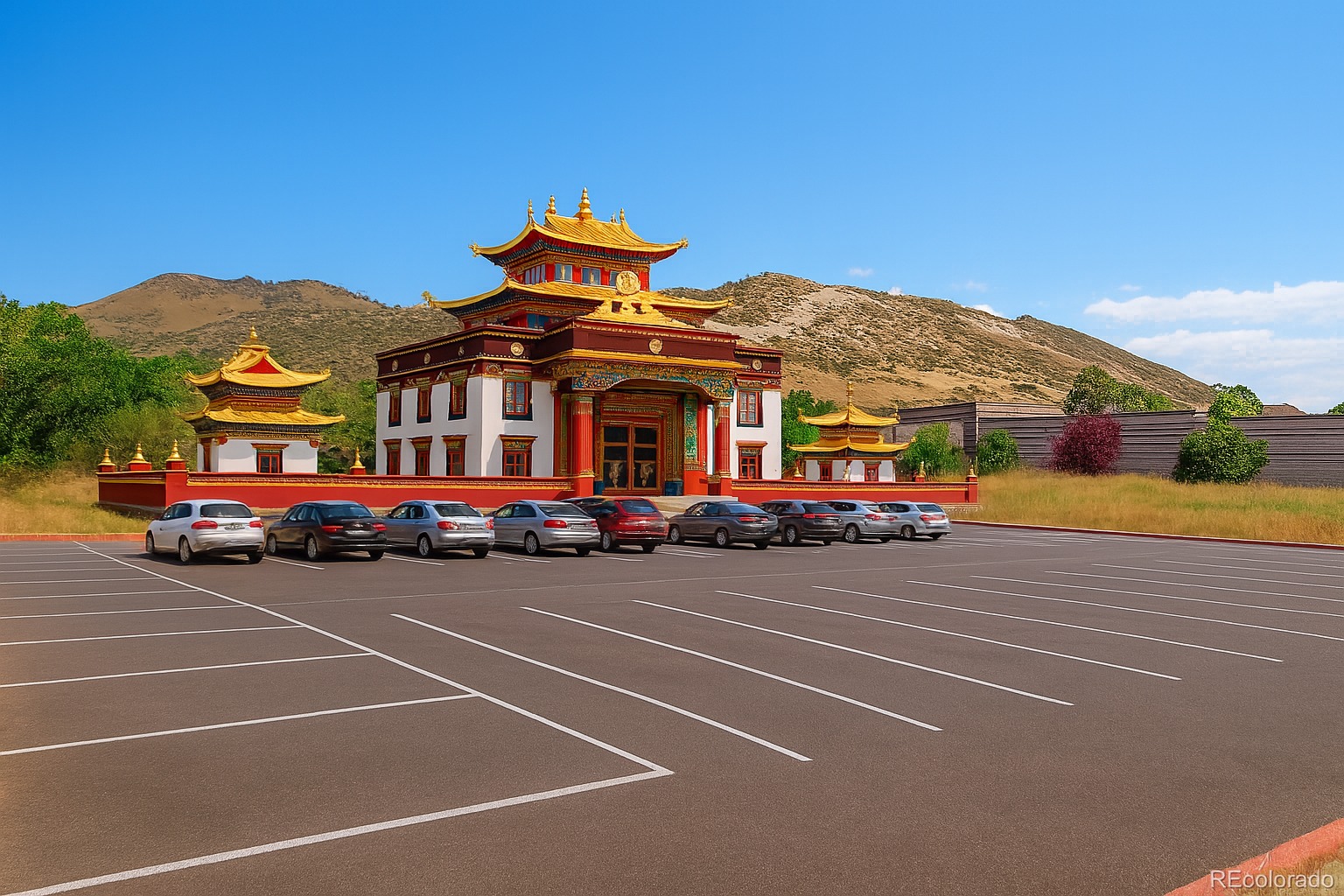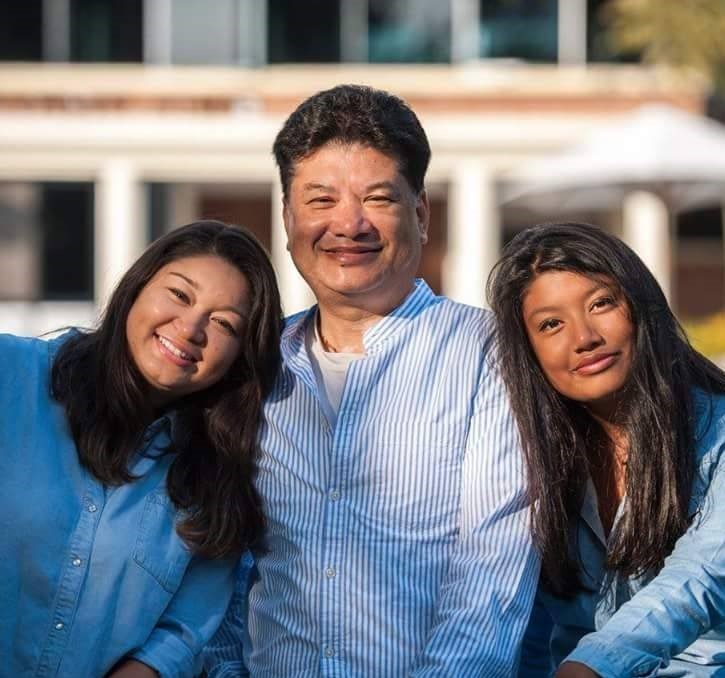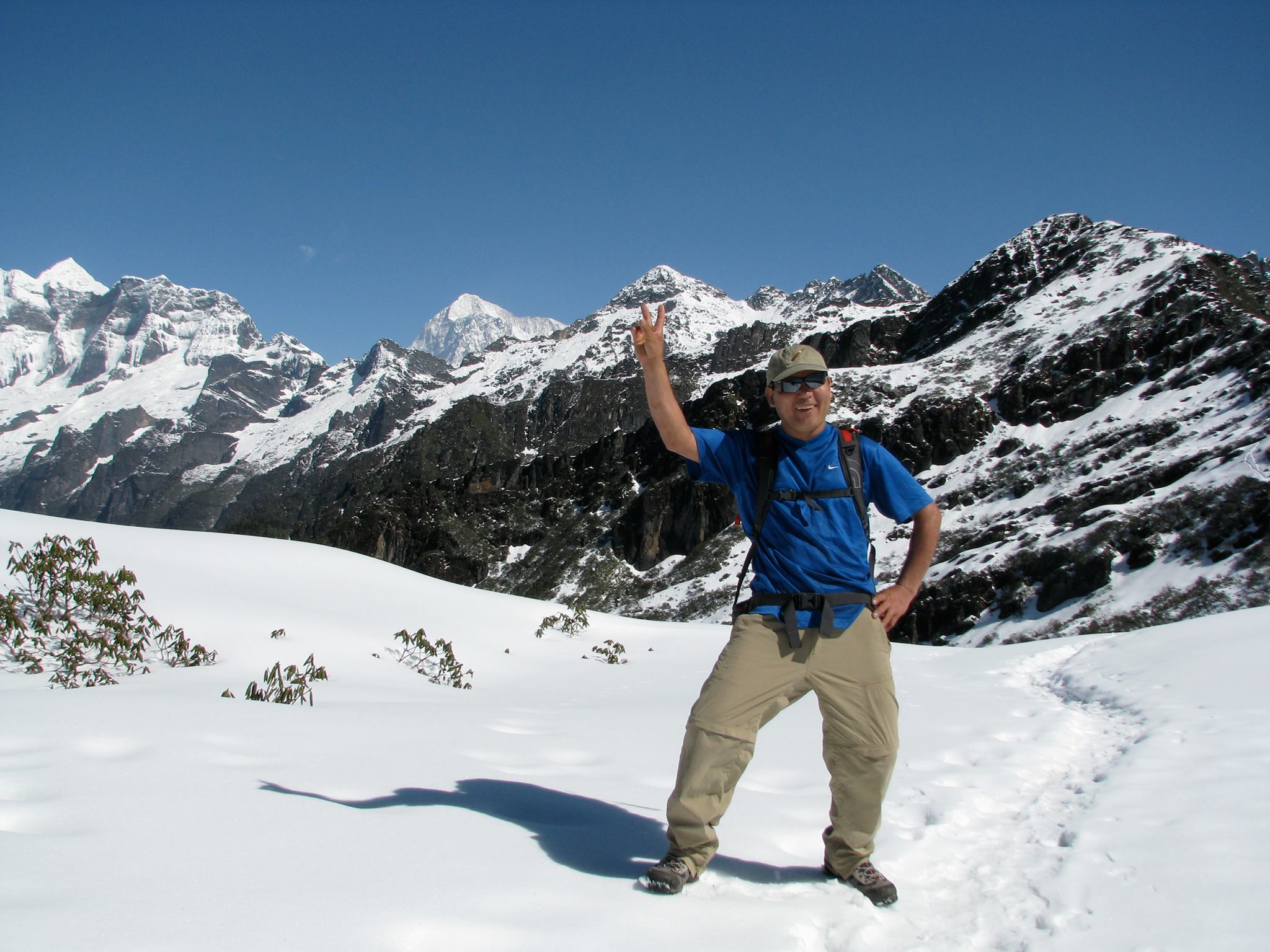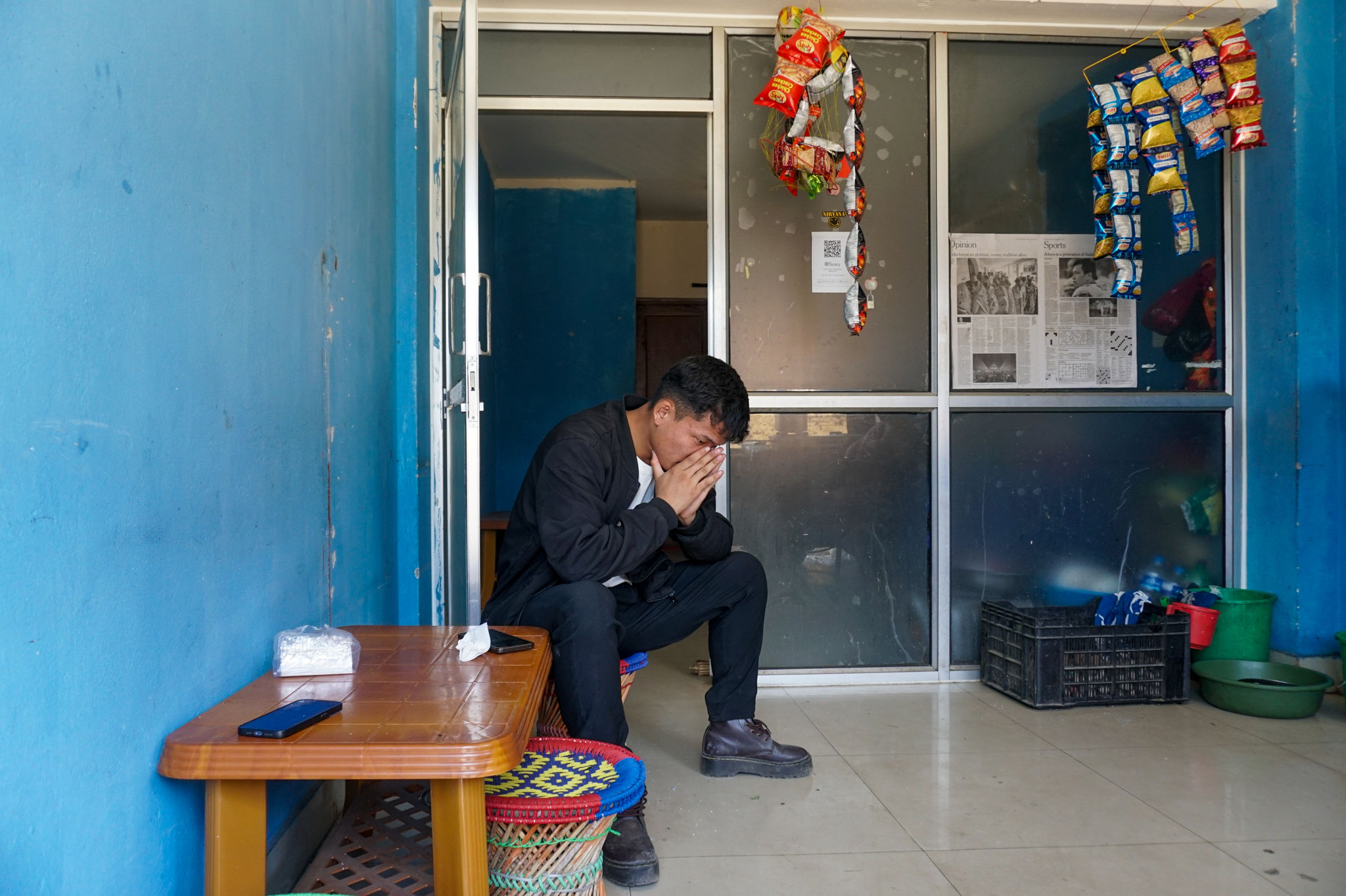Hikmat in leading roles of Dangote , Africa’s largest business Conglomerate
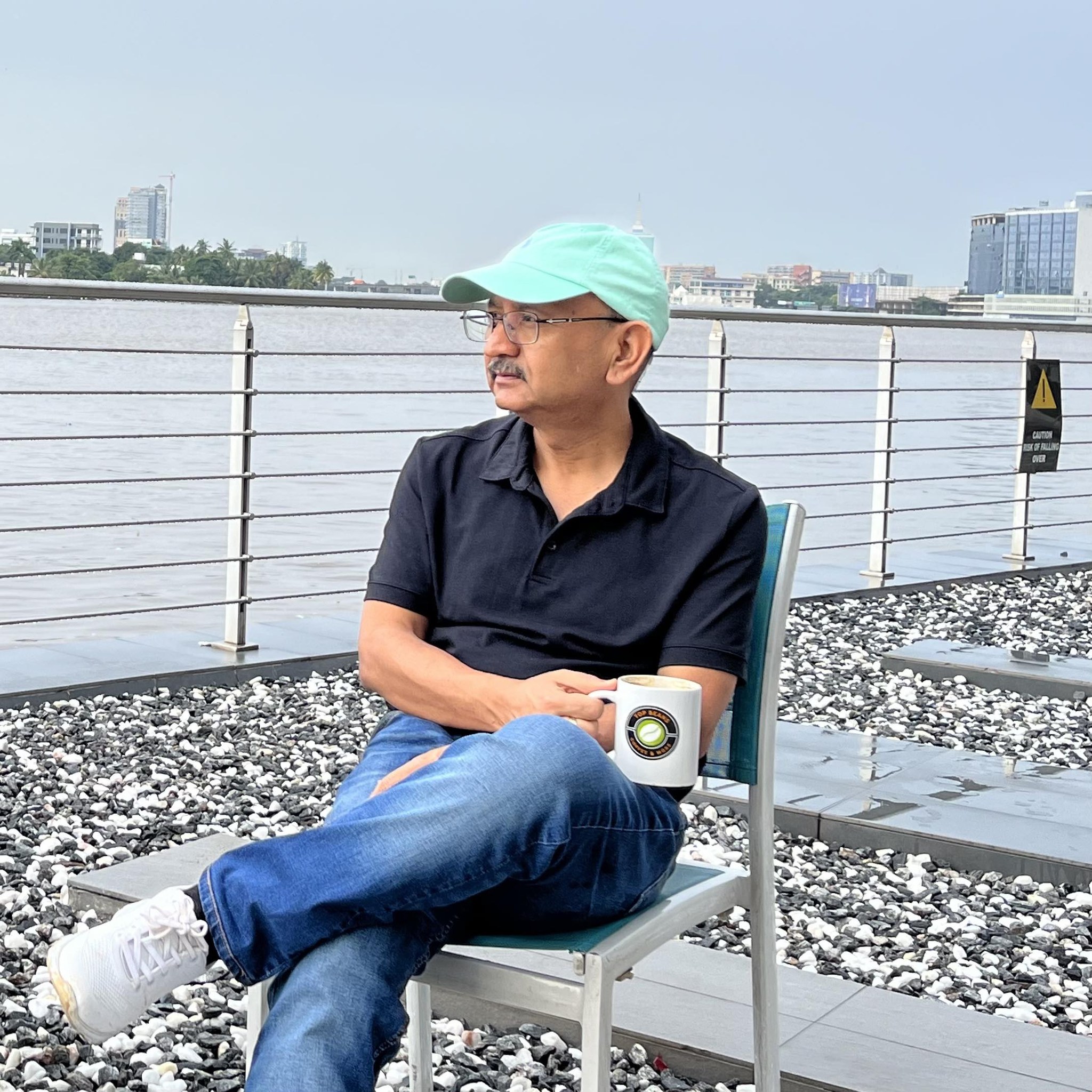
Dirgha Raj Upadhyay
If humans had wings like birds, would they dream of flying ? Perhaps not. But who needs wings to fly when they have dreams? Life is like an airplane, and dreams are its wings. That’s why humans soar farther than birds. The story of a man raised on the banks of the Karnali River in Kailali, Nepal, teaches us to simply dream and chase that dream. You don’t need wings to fly—just willpower. Hikmat Thapa, born in remote Achham and now standing at the peak of success in West Africa’s Nigeria, proves this truth. Born on Magh 19, 2025 B.S. (February 1, 1969), in Patekhet, Darna Gau Palika (now Jayagadh BanniGadhi Rural Municipality), Achham. Hikmat is the eldest of four children of Gagan Singh and Nutan Thapa. When he was four, his father moved to Khairifanta in Kailali. Hikmat moved with him.
Around 1975/76, they were part of a squatters’ settlement in Katasé. Nearby was the emerging market of Katasé and the Tikaur Development Committee had just been established. To prevent erosion by the Karnali River, several settlements were relocated, and afforestation efforts began. Their house was spared. His father, a teacher by profession, highly valued education and opened a primary school in Khairifanta, starting with 18 students, including Hikmat.
That school later became Arunodaya Secondary School. After studying there up to grade three, he went to Dharmapur for grades 4 to 7, and later to Tikapur Boarding School for grade 8. In 1983, King Birendra laid the foundation stone for a new building there, renaming it Birendra Vidya Mandir, from where Hikmat completed his SLC (School Leaving Certificate) . At that time, there was only one exam center in Kailali—in Dhangadhi. Due to a leaked question paper, his math exam was postponed and rescheduled after three months, which required two trips to Dhangadhi via Palia Kala, India a whole day’s journey then . After SLC, he moved to Nepalgunj and completed his I.Sc. (Intermediate of Science), passing among only three students. Dreaming of becoming an engineer, he went to Kathmandu to take the entrance exam for Pulchowk Engineering College but wasn’t selected.
He then traveled to Hattisar , Dharan to study B. Tech. Food Technology at the Central Campus of Technology—Nepal’s only institution offering that course. Though admissions had closed, Campus Chief Jagat Bahadur KC admitted him as the first student from beyond the Narayani West and granted him a scholarship of Rs. 200 per month. He excelled, topped his batch, and graduated in 2047 B.S. (1990 A.D.), becoming a certified Food Technologist, though his father had hoped he would become an engineer. Just three days after his final exams, he went to Kathmandu, where Chaudhary Group had just opened Nirvana Vanaspati. Before his results came out, he got a job offer. While the officer’s salary was Rs. 1200 he started with Rs. 3,000. In 2048 B.S. (1991 A.D.), Yum Yum Noodles opened in Tandi, Chitwan. He joined them after being promised training in Bangkok.
He flew Thai Airways and trained in Wan Thai Food Industries, Bangkok . He became the first Nepali food technologist trained in instant noodle production abroad. He worked there for 11 years, rising to Factory Manager. Under his leadership, Yum Yum became Nestlé India’s co-manufacturer, producing Maggi 2-minute noodles for Nepal, Bihar , West Bengal, and Northeastern India. He made multiple visits to Nestlé’s Moga factory in Punjab. After Chitwan, he worked with MinMin Noodles in Kathmandu, expanding its market from Ilam to Dadeldhura, even amid the Maoist conflict. He later became General Manager at HP Agarwal Group, overseeing Flour , rice, soap, and vanaspati oil manufacturing and business from Kathmandu.
During the conflict, Maoists bombed his home in Katasé and looted their property. His father, a Nepali Congress Leader and Member of Kailali District Development Authority had already moved the family to Kathmandu after building a house there in 2059 B.S. At HP Agrawal Group, he managed operations, logistics, and marketing nationwide. Then, he was offered a job at Rumpum Noodles, owned by Sarada Group to set up a Noodle & Snack food plant in Rudrapur, India.
But around the same time, he learned of a vacancy at Dangote Group, Nigeria, for the post of General Manager. He applied and was invited to Chennai for an interview. After being selected, he moved to Nigeria in December 2006. Initially managing Dangote’s noodle factories, he established three plants. Gradually, he managed their sugar, vegetable oil, tomato paste, flour, pasta, salt, Seasoning ,and Rice mills. Currently, he is the Managing Director of Dangote’s Heavy Vehicle and Truck Manufacturing Division, which produces over 10,000 trucks annually. He has worked at Dangote for 19 years, holding multiple roles including Group General Manager, Managing Director, and CEO of one subsidiary. He also oversees new agriculture and food processing projects focusing on sugar, rice, tomato, Soyabean , Wheat and Dairy. The Dangote Group, based in Lagos, Nigeria’s former capital and economic hub, operates in 16 countries.
It employs over 200,000 people, including Indian ,South Asians and few Nepalis, with Hikmat being the highest-ranking Nepali. Lagos, though no longer the capital (replaced by Abuja in 1993), remains Nigeria’s economic nerve center. Nigeria has 220 million people—Africa’s most populous nation—with 1 in 5 Africans being Nigerian.
Personal Values & Legacy
Hikmat’s father was deeply influenced by B.P. Koirala and literary culture. He regularly read Sarita, Kadambini, and other literature, which sparked Hikmat’s own passion. He began writing poems and joined poetry competitions in school. In 2044 B.S., while studying in Dharan, he and friends started Atirikta Swarharu (Additional Voices), publishing poetry collections. He later led the Nepal Food Technology Students’ Union and became editor of Oasis, a publication of the Nepal Student Union. Later, he was executive editor of Sampreshan, a respected literary magazine from Chitwan . In 2015, he published his first poetry collection titled “The Girls of Chibok”, reflecting his continued commitment to literature—even from Africa. Hikmat also continuing his literature icon fathers dream to strength far west & Karnali s literature & cultural value whose more then Nine books are already published .
Social Impact & Philanthropy
Though he has achieved personal success, Hikmat remains grounded in social service, especially in Sudurpaschim (Far-West Nepal). During the COVID-19 pandemic, he led efforts to deliver oxygen, ambulances, and even mobile blood bank to remote areas like Dadeldhura, Achham,Jumla, and Mugu. He helped establish libraries and classrooms across multiple schools in places like Chitwan, Dharan, Hetauda, Janakpur, Khotang ,Rasuwa and Kailali, and led the campaign for Shabbahan to Tikapur hospital , Ambulance for Katase and Mobile blood bank bus for Dhangadhi . As two periods elected Treasurer of Non-Resident Nepali Association a global Nepalese diaspora Association Hikmat led and involved many Social & Philanthropic works throughout Nepal . He also plays key role to hand over One Million US Dollars support to Nepal Government from Aliko Dangote Foundation for Earthquake victims in 2015 .He even attempted to bring Dangote investment (over Rs. 60 billion) into Nepal’s cement industry—but failed due to government apathy. His father had earlier led the effort to create Nepal’s largest community forest—Chhatiwan—turning a barren riverside into a green reserve. Hikmat inherited that same determination and love for his homeland.
A Heart in Two Worlds Though his body is in Lagos, his heart remains in Katasé, Tikapur, and Karnali. In his free time, he walks with his wife, Mana, along the ocean shore, sipping coffee. But his thoughts are often in the past—nostalgic for his childhood by the Karnali. His wife notes that whenever a disaster strikes Nepal, he becomes restless—unable to sleep—until he finds a way to help. She is his companion, his strength, and a constant support.
Final Thoughts
Hikmat Thapa grew up by the Karnali River and now thrives beside the Atlantic Ocean. But no matter how far he’s come, his soul is anchored in the soil of Sudurpaschim. His life is a shining example of how dreams, discipline, and dedication can take a boy from a humble village to the global stage—without ever forgetting his roots. Despite setbacks, he keeps going. He once said: “To do good work, you don’t need position—you need willpower and heart.”


